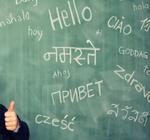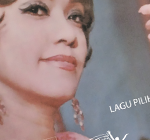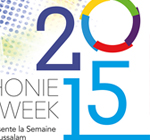
Learn Language On The Go
It is entirely possible to learn a language online and these days, there's a site or app to suit every level of enthusiasm.
More
text . Pauline Chan .
According to National Geographic, 97% per cent of our earth's water is too salty to drink, 2% is locked in ice caps and glaciers and only 1% is available for drinking, agriculture, industry and nature. The 'only 1%' is not what most of us see when we turn on our taps. Most see abundance and an unending supply, and many we have encountered, see free water that we are entitled to use as we like.
It is unfortunate that many we have met in Brunei do not ponder the availability and source of the water we get everyday, and that the water crisis around the world is too abstract for consideration. For billions of people on earth, the hardship of water shortage and no access to clean water and sanitation is a reality. Over a billion people have no access to safe, clean drinking water; 3 billion have no access to sanitation and 4,800 people die from water-borne diseases everyday such as cholera, leptospirosis and botulism which lead to diarrheal illness - the second biggest killer of children worldwide.
Water is a global issue. It is also a very local issue. Alexandra Cousteau, a National Geographic Emerging Explorer explained, "We forget we live in a hydrosphere, that all of our water resources are connected. Water in the Ganges could also end up in the Hudson (River), or could fall over the plains in Africa, or could make a cup of tea in the Queen's palace." Our water system is connected around the world.
Feeding and fueling humankind's needs towards water have lead to an over-using, over-tapping, over-pumping of our water from the surface and ground. With ever-the growing population, the need for new sources of water is intensifying. Some countries have resolved to reduce water consumption from natural sources through recycling water.
In comes Greywater - the waste water generated from some of the household tasks that we undertake such as a shower, washing the clothes and dishes. Greywater is named to distinguish it from 'whitewater', which is clean potable water piped into our homes; and 'blackwater' which is sewage taken from the bathroom via the sewer lines. Greywater is in between these two - it is not clean enough to be potable or used for washing but it is OK for certain applications in the home as it is not as toxic as blackwater. 
Greywater can be used for landscape irrigation after treatment to remove chemicals that may be harmful to the soil or plants. Another use is in the temporary diversion of water through a heat-exchanger that surrounds the pipes in which cold water is carried to a water heater. The cold water is thereby pre-warmed by the greywater, saving water-heating costs in the process.
On the small island of Singapore, water has, for decades, been piped into the country from its neighbour, Malaysia. The islanders have made strides to achieve water independence through reclaiming used water via a purification system involving advanced membrane and ultraviolet technologies to produce ultra-clean water that is safe for drinking, thus increasing their sources of water that includes desalinated water from the sea.
Water is renewable but if the source is depleted at a faster rate than it can be renewed, then the the water crisis will deepen with consequences that will be harder for future generations to solved. Conscientious individual effort to conserve water is required to make a difference now and there are many ways to do it. Right now, here's 7 little steps to take:
Turn off your taps
Turn off the water while brushing your teeth or soaping your dishes, and turn it back on only when rinsing. Fill a basin with water when washing fruits and vegetables instead of running them under running water one at a time. Letting water run continuously waste a lot of water, as does turning on the faucet full blast when you are rinsing a small item. According to the U.S. Environmental Protection Agency (EPA), a conventional faucet releases 5 gallons of water every two minutes.
Wash full loads
Only run your washing machine and dishwasher when they are completely full. This will result in fewer loads and conserve water. You can save up to 1,000 gallons of water per month.
Water your plants wisely
Water your plants in the morning or evening to reduce the amount of water lost to evaporation during the heat of the day. If you use sprinklers, adjust them so maximum water reaches the plants instead of the sidewalks, pavements or house.
Reuse water
If you have any kind of leftover clean water, use it to water your garden or lawn. For example, instead of draining your fish tank into your sink, take the water and apply it to plants in your garden. If you wash your fruits and vegetables in a bowl, recycle the water on your house plants. Water used to rinse your rice is highly beneficial for watering your plants.
Plug any leaks
Plug any leaks in your faucets, toilets, pipes, shower heads or sprinkler system as quickly as you can. If you cannot fix the leak immediately, then place a bowl or bucket under the leak to collect the water and use it for other tasks. The EPA estimated that the average American home can waste more than 10,000 gallons of water annually due to leaks, a number that can similarly reflect a local situation.
Upgrade your appliances or water closets
Older washing machines and dishwasher models generally have longer rinse cycles than newer one. Upgrade to more environmentally-friendly models to conserve water. Similarly, water closets have dual flush modes with less water used for urination. Older models with flush down modes tend to use more water than the newer types with better technology.


Learn Language On The Go
It is entirely possible to learn a language online and these days, there's a site or app to suit every level of enthusiasm.
More

Saloma in My Car
I would not define myself as a 'Feminist', I cannot say that I am ardently passionate about burning brassieres or hosiery but I do believe that I am a humanitarian ...
More

Francophonie Week 2015
ALLIANCE FRANÇAISE DE BRUNEI (AF Brunei) is proud to announce the celebration of their annual event – Francophonie Week 2015 - from the 21st until 28th March 20 ...
More